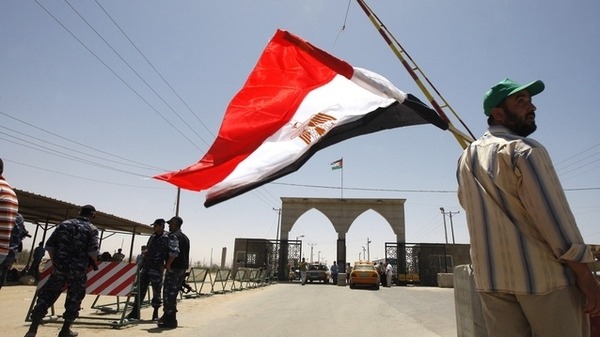|
Egypt to present contentious NGO law to senate

AFP, Cairo
Egypt’s presidency said Tuesday it will submit a proposed law regulating civil society groups to the senate, insisting it reflects the values of the country’s democratic uprising despite accusations it is restrictive.
The bill regulating foreign and local non-governmental groups would be submitted on Wednesday to the senate, which also acts as an interim parliament, Walid Zoghby, who helped to draw up the draft legislation, told AFP.
Presidential adviser Pakinam Sharkawi said the draft law “reflects a balance between... the objective of defending national security and that of defending the freedoms of civil society groups.”
The move comes after fierce criticism of other proposed laws regulating non-governmental organizations, including one that gave security agency representatives oversight of NGOs.
“I confirm this draft law completely removes the security role,” Zoghby told a news conference.
Sharkawi, speaking at the same event, insisted criticism of the draft law, which the presidency has not yet made public, was inaccurate and reflected past versions.
But the most recent draft the presidency has shown to civil society groups, dated May 18 and obtained by AFP, does not preclude security services’ representation on a powerful steering committee that oversees NGO foreign funding.
A presidential aide said the draft law guarantees representation of civil society groups on the committee, but the minister who heads the committee may choose other members as he sees fit.
Under Hosni Mubarak, the long-serving president overthrown in Egypt’s 2011 popular uprising, many rights groups failed to get operating licenses and their activities were monitored and vetoed by the then all-powerful security services.
Following his ouster, the offices of foreign NGOs were raided under the interim leadership of the military and their activists, including Americans, were referred to trial for receiving illicit foreign funds.
“The philosophy of the Egyptian state before the January 25 revolution was to control society,” said Sharkawi.
“Now we witness a new era, in which the presidency adopts a new vision, a philosophy of cementing cooperation between the state and society,” she said.
Heba Morayef, Human Rights Watch’s director in Egypt, said the latest draft she had seen would still allow political restrictions over the funding and activities of NGOs.
Egyptian rights groups largely depend on foreign funding, she said, which would be controlled by the steering committee.
“The steering committee has absolute control over the funds you receive,” she told AFP.
“This will affect human rights groups in particular because they are dependent on foreign funding; it has always been a lifeline for them.”
Morayef said the groups would have to obtain the steering committee’s permission for any funds they receive or face a fine up to $14,200.
Sharkawi, a close aide to Islamist President Mohamed Morsi, himself a former political prisoner under Mubarak, said activities would only be blocked under clearly defined guidelines.
NGOs would be unable to use funds from abroad for political campaigns in Egypt, for example.
And if the committee objects to an NGO project, it first addresses the organization, and if ignored it must take the case to court.
|
Ingrid Stellmacher, 29/05/2013
|
|
|
|
The Mary Initiative
A Bridge of Understanding
Operational, Safety, Security & First Aid Training for NGO's
|
|
|
|